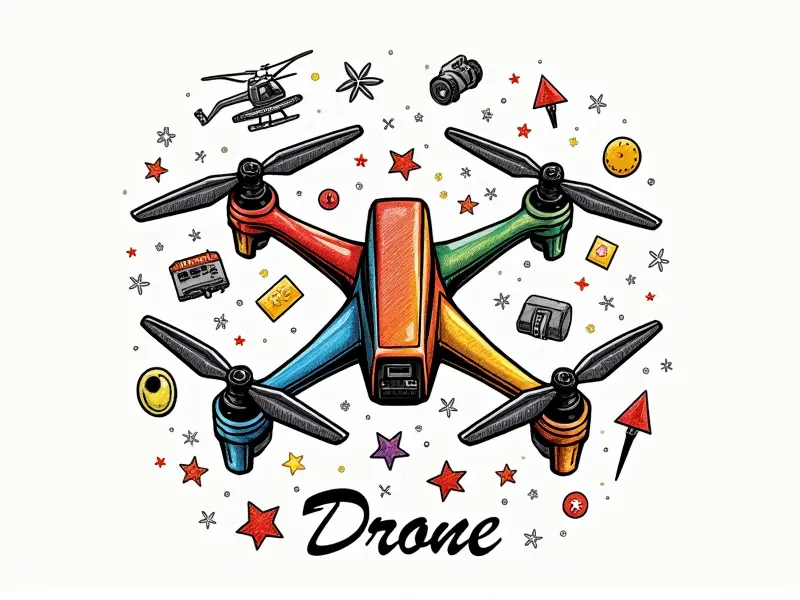Are FPV drones legal?

Are FPV Drones Legal in Your Area?
Flying FPV (First Person View) drones has become increasingly popular among hobbyists and enthusiasts. However, with the rise in popularity comes a growing concern about legality. Before you take to the skies with your FPV drone, it's crucial to understand the rules and regulations that govern their operation.
Understanding the Rules for FPV Drones
The legal landscape surrounding FPV drones varies significantly from one region to another. In some areas, strict laws restrict where and when you can fly your drone. It is essential to familiarize yourself with local aviation regulations before taking off.
Federal Regulations
- FAA Rules: The Federal Aviation Administration (FAA) has specific guidelines for commercial and recreational use of drones in the United States.
- Civil Aviation Authority (CAA): In the UK, the CAA sets out rules that apply to all drone operations, including FPV racing.
State or Provincial Regulations
- In many states and provinces, additional regulations may be in place, such as restrictions on flying over populated areas or near airports.
FPV Drone Legislation: What You Need to Know
To ensure that your FPV drone activities comply with the law, you must understand key legislative points:
Licensing and Registration Requirements
- FAA Part 107 Certification: In the U.S., obtaining a Remote Pilot Certificate is mandatory for commercial use.
- Drone Registration: Many countries require you to register your drone with aviation authorities before flying it.
No-Fly Zones and Restricted Areas
- Flying over sensitive locations such as military bases, prisons, or government facilities is prohibited in most regions.
Are FPV Racing Drones Legal Where You Live?
The legality of FPV racing drones can vary widely depending on your location. In many areas, organized races and events are permitted under specific conditions:
Event Permits
- Obtaining a Permit: Organizers often need to apply for special permits from local aviation authorities.
Racing Club Regulations
Many FPV racing clubs have their own set of rules and guidelines that members must adhere to. These may include restrictions on the types of drones used, altitude limits, and safety protocols.
The Legalities of Operating FPV Drones
To avoid legal issues while flying your FPV drone:
Privacy Concerns
- Flying over private property without permission can lead to legal consequences. Always respect people's privacy.
Civil Liability and Insurance
- Insurance Coverage: Consider purchasing liability insurance to cover damages or injuries caused by your drone.
Is It Legal to Use FPV Drones?
The legality of using FPV drones depends on several factors, including the type of drone and intended use. Here’s a breakdown:
Recreational Use
- Personal Enjoyment: Flying for personal enjoyment is generally allowed but must comply with local regulations.
Commercial Use
- Professional Services: If you plan to use FPV drones commercially, such as for photography or surveying, additional certifications and permits may be required.
Flying FPV Drones Legally: A Quick Guide
To ensure compliance with the law when flying your FPV drone:
Check Local Regulations
- Local Authority Websites: Visit websites of local aviation authorities for up-to-date information.
Follow Best Practices
- Safety First: Always prioritize safety by flying within line-of-sight and avoiding restricted areas.
FPV Drone Laws and Regulations Explained
The legal framework governing FPV drones is complex, but understanding the basics can help you navigate it more easily. Here’s a summary:
Airspace Restrictions
- No-Fly Zones: Be aware of no-fly zones and avoid flying in these areas.
Data Privacy Laws
- Privacy Concerns: Respect people's privacy by avoiding intrusive surveillance activities.
Where Are FPV Drones Allowed to Fly?
Finding appropriate locations for flying your FPV drone can be challenging. Here are some tips:
Parks and Open Spaces
- Public Parks: Many parks allow recreational drone use, provided you follow posted rules.
Agricultural Land
Flying over agricultural land can be permissible for surveying purposes but may require permission from the landowner.
FPV Drone Rules & Regulations Explained
The rules and regulations surrounding FPV drones are designed to ensure safety and security. Here’s a closer look at some key points:
Daily Flight Logs
- Maintain Records: Keeping detailed logs of your flights can help in case of legal issues.
Safety Equipment Requirements
- Necessary Gear: Ensure your drone is equipped with the required safety features, such as anti-collision systems.
Legal Issues with FPV Drone Flying
Ignoring the rules can result in legal consequences. Here are some common issues to be aware of:
Penalities for Violations
- Fines and Penalties: Failing to adhere to regulations can lead to substantial fines or even imprisonment.
Litigation Risks
- Safety Incidents: If your drone causes an accident, you may face legal action from affected parties.
Conclusion
Flying FPV drones can be a thrilling and rewarding hobby, but it’s essential to stay informed about the laws governing their use. By understanding and adhering to local regulations, you can enjoy your drone without risking legal troubles. Always check with aviation authorities for the most current information before taking flight.

